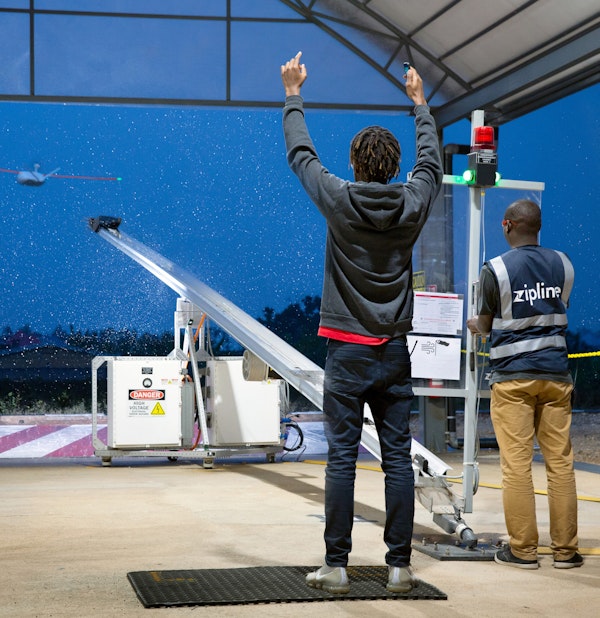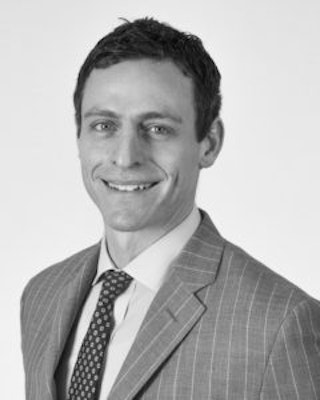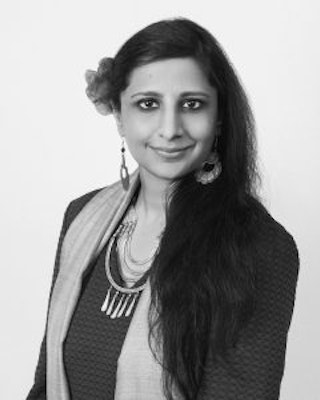Social Entrepreneurs: A Force for Global Good
Social entrepreneurs see opportunities to solve problems in every corner of the world, from remote villages needing electricity and medicine to under-served communities in large cities. Driven by optimism rather than simply profit margins, these entrepreneurs often see no problem as too big to tackle.
 Solar Sister provides women with opportunity, training, technology, and support to distribute clean energy to communities in Africa. (via Solar Sister)
Solar Sister provides women with opportunity, training, technology, and support to distribute clean energy to communities in Africa. (via Solar Sister)
As The Catalyst editorial board met to plan the summer edition, social entrepreneurship kept coming up as a force for good around the world, even though it might not always end up in the headlines. Across the globe, however, mostly younger people are addressing intractable problems like the lack of electricity while applying the innovative spirit of entrepreneurship.
Two Presidential Leadership Scholars, Neha Misra and Conor French, are among the social entrepreneurs making a difference through their organizations. Misra is the co-founder of Solar Sister, which supports women in Africa to develop energy supplies. French is general counsel of Zipline, which specializes in using drones to deliver needed medicines and medical supplies to communities in Rwanda and Ghana. They discussed their work, as well as the phenomenon of social entrepreneurship, in an email conversation with Catalyst Editor William McKenzie.
Before we get deep into this conversation, what is social entrepreneurship? How do you define it?
Misra: To me, social entrepreneurship is a radical act of courageous, creative, and persistent human beings reclaiming their own power to be change-makers. We are doing this in our backyards, in our communities, and across the globe. We are a global human chain of hope and resilience.
Lilla Watson, Aboriginal elder, activist, and educator from Australia, said, “If you have come here to help me you are wasting your time, but if you have come because your liberation is bound up with mine, then let us work together.” Social entrepreneurs realize that our liberation is tied together and so we must join hands for our collective liberation and wellbeing.
“Social entrepreneurship is a radical act of courageous, creative, and persistent human beings reclaiming their own power to be change makers. We are doing this in our backyards, in our communities, and across the globe.”
—Neha Misra
French: Social entrepreneurship encompasses a range of organizations whose purpose reaches beyond traditional concepts of “maximizing shareholder value” to embrace and achieve societal benefits in the environments and communities they serve. Since that focuses on the historical differentiation from private-sector approaches, it might be worth adding that, unlike many prevailing non-profit approaches, social enterprise brings to bear twin emphases on systemic solutions and innovation.
“Social entrepreneurship encompasses a range of organizations whose purpose reaches beyond traditional concepts of ‘maximizing shareholder value’ to embrace and achieve societal benefits in the environments and communities they serve.”
—Conor French
What, then, is giving rise to social entrepreneurship?
French: I would point to two trends: businesses’ role in society and rapid growth in technology.
First, the leadership role businesses are playing in today’s society is largely unprecedented. Much has been written about the massive influence of decades of capitalism on wealth creation and social and economic inclusion and equality in America. Whether good or bad, the reality of this arrangement, where government has tended to support rather than restrain business in almost all respects, is that it has thrust enormous trust and responsibility on our businesses to positively impact the world.
Without guardrails, many businesses have not lived up to their side of this bargain. I believe this opportunity, coupled with the frustration of emerging change-makers, has spawned a generation of people determined to drive business to do better. If we’re going to continue to empower them with this level of freedom, trust, and responsibility, we’re going to be there to ensure they earn it.
Second, we continue to experience unprecedented, rapid growth in technology. This pace of technological innovation and availability brings the world closer together every day. It invites new solutions to old problems. I’m not necessarily a technology evangelist so I don’t want to label technology itself as good or bad; however, it creates tremendous opportunities and challenges.
 Zipline delivers medicine to people outside of traditional supply chains via drone. (via Zipline)
Zipline delivers medicine to people outside of traditional supply chains via drone. (via Zipline)
I’ve been fortunate to find places where applying new technologies to complex, persistent social problems has been profoundly impactful. For example, at Funding Circle, we used the power of the internet, a data revolution, and advanced analytics to expand access to safe and affordable capital for historically-underserved small businesses. And, more recently at Zipline, our aerospace and logistics innovations enable us to provide instant access to vital medical supplies to people no matter where they live.
Misra: A number of factors are giving rise to social entrepreneurship — we are seeing a new generation of innovators, doers, and organizers who are tired of waiting for change to be handed to them. Why wait for change when one can “be” the change? We have much work ahead but I do see a growing public consciousness and conversation on the power of doing away with the false dichotomies of the past: enterprise or environment, social good or private well-being?
We are seeing a rising tide of solution-seekers and risk-takers who are asking: How can business can be a force of good? How can social-change organizations apply business models and innovations to solve some of the world’s biggest challenges? How can we build bridges between social impact and purposeful and compassionate businesses?
I agree with Conor that unprecedented, rapid growth in technology has had a far-reaching impact and spurred social enterprise innovation like never before. I see the impacts across mobile technologies, health care, and clean energy areas, to name a few.
“A number of factors are giving rise to social entrepreneurship — we are seeing a new generation of innovators, doers, and organizers who are tired of waiting for change to be handed to them.”
—Neha Misra
Give our readers your quick take on how you apply social entrepreneurialism in your work. For example, Neha, your organization talks about “democratizing light and energy.” What does that mean? And Conor, your organization uses drones to deliver critical medicines and medical supplies to hard-to-reach communities in Rwanda and Ghana. How did this merger of technology and medicine come about?
Misra: In sub-Saharan Africa, over 600 million people have no access to electricity and over 700 million rely on harmful solid cooking fuels. It is women and girls who bear the huge burden of lack of most basic modern energy access that most of us in the western world take for granted as we flip the light switch many times over the course of a day. In the face of rising deforestation and resource conflicts due to climate change, women and girls are disproportionately impacted as they lose safety, income, health, and education opportunities.
 (via Solar Sister)
(via Solar Sister)
That, in an age of space tourism becoming a reality, a vast majority of humanity has not seen the wonder of a single light bulb is a glaring injustice. We must democratize light because everyone deserves light and the promise it holds to unfold hope and opportunity, especially for the most underserved and vulnerable people in off-grid communities across the world.
You and I should care because, as Martin Luther King’s words remind us, “Injustice anywhere is a threat to justice everywhere. We are caught in an inescapable network of mutuality, tied in a single garment of destiny. Whatever affects one directly, affects all indirectly.” How can we sustain our own peace and security if millions continue to be in darkness?
We must build a movement of shared light!
This is where my social enterprise Solar Sister comes in. We believe women are a key part of the solution to the clean energy challenge. This is why we invest in women’s enterprise in off-grid communities across Africa. We see the opportunity to empower women and to reach people who aren’t reached by business-as-usual energy models.
“We believe women are a key part of the solution to the clean energy challenge. This is why we invest in women’s enterprise in off-grid communities across Africa. We see the opportunity to empower women and to reach people who aren’t reached by business-as-usual energy models.”
—Neha Misra
Centering local women in a rapidly-growing clean energy sector is essential to eradicating poverty and achieving sustainable solutions to climate change and a host of development issues. And decentralized renewable energy is one of the quickest ways to ensure sustainable access for all.
Local women are enterprising, creative, hard-working, and committed to improving the well-being of their families and communities. Like Nanbet, a formidable young single mother raising five children. She’s a farmer and a clean energy entrepreneur in Nigeria, selling solar lights and clean stoves in her community and using the profits to pay for fertilizers for her farm and to send her grandchildren to school. This is the kind of generational change that combining clean power with women power can make.
Since 2009, we have built a network of over 4,000 Solar Sister entrepreneurs who have brought transformational clean energy to over two million people across Africa. And we have miles to go to reach millions more.
French: First, I love Neha’s consistent calls to action on personal empowerment (not to mention courage and values). It’s awesome. It’s also true that I couldn’t have pursued the path I chose without a fairly relentless commitment to personal empowerment — a resolve to always be uncomfortable in driving toward my best self and, when wishing things might be going better, returning to an understanding that “we are who we’ve been waiting for.”
Second, I think as a society we need to accept that we have the technology and tools so that a great deal of suffering around the world is our choice. We are choosing not to fix it.
“I think as a society we need to accept that we have the technology and tools so that a great deal of suffering around the world is our choice. We are choosing not to fix it.”
—Conor French
When you find ways that technology applications can create meaningful change and open doors of opportunity for people and communities, you can assemble the right people and devise the right strategies to build a successful, sustainable business to swing open those doors.
At Zipline, we’re painfully aware that the current health care system only serves the golden billion on the planet. We’ve assembled a talented team, supportive investors, and appreciative customers to ensure we solve that problem.
 A doctor receives a package from Zipline. (via Zipline)
A doctor receives a package from Zipline. (via Zipline)
For example, in Rwanda, working with the Ministry of Health to deliver blood to rural health facilities, our drone delivery system was quickly able to address a critical (and solvable) maternal mortality challenge — mothers without fast and reliable access to blood transfusions dying of post-partum hemorrhaging.
Misra: Such a great answer, Conor. I think our work is also about creating empathy amongst the “haves” here in the West. How many of us can imagine not having light before a school exam? Or going to a hospital during labor where there is no electricity? Or having no life-saving vaccines! We have much to be grateful for here and we must constantly think what we can do for others who don’t have everyday necessities available.
“I think our work is also about creating empathy amongst the ‘haves’ here in the West. How many of us can imagine not having light before a school exam? Or going to a hospital during labor where there is no electricity?”
—Neha Misra
What impact might social entrepreneurship have on countries over the next decade? And what stands in the way of realizing an even greater impact?
French: I’ve thought a lot about this question in the context of social change efforts generally — are we gaining or losing momentum? Many key global health, financial wellbeing, and other livelihood metrics tell a story of these being the best years in human history. Yet our firsthand experiences across America and around the world seem to tell us a different story — communities divided, accelerating inequality, and individual vulnerability.
Reconciling these experiences runs deeper than tracking the progress of social entrepreneurship. But it stands tall in thinking about whether we today have the right ecosystem and infrastructure to fashion our future world in a way that will.
I’m not sure I know the answer so I’ll stick to what I know. We need to think through problems in ways that are longer than election cycles. We need to revisit why we accept food, financial, and health insecurity across our nation and the world. We need to tackle why so many countries are increasingly turning inward instead of outward to support one another. And we need to rejoice in our common humanity rather than disintegrate under the weight of our difference.
When I think of social entrepreneurship, I think of an ideal of shared prosperity — not strictly in economic terms but in a business thriving along with the communities it serves, not at the expense of them. So maybe that’s the thing. Social entrepreneurship compels us to think about community, to place our hope and prospects for success in community instead of ourselves, and in that sense go beyond impact to promote shared understanding, heal division, and provide a reminder that shared prosperity is the best prosperity.
“When I think of social entrepreneurship, I think of an ideal of shared prosperity — not strictly in economic terms but in a business thriving along with the communities it serves, not at the expense of them.”
—Conor French
Misra: I believe that social entrepreneurship, in its diversity of avatars, holds the promise to positively impact our communities, countries, and the planet — both the economies and the spirits ( let’s not forget the spirit which moves mountains).
In the face of impossibilities our world faces, social entrepreneurs can come together to dream, test, and scale solutions — old and new. We can learn from our successes and brilliant failures alike. We must stand in solidarity to build bridges of understanding and action in face of apathy.
In the meantime, as one of my heroines, the late Wangari Maathai, a Nobel Peace Prize-winning professor from Kenya, said “I will be a hummingbird; I will do the best I can.”
The Catalyst believes that ideas matter. We aim to stimulate debate on the most important issues of the day, featuring a range of arguments that are constructive, high-minded, and share our core values of freedom, opportunity, accountability, and compassion. To that end, we seek out ideas that may challenge us, and the authors’ views presented here are their own; The Catalyst does not endorse any particular policy, politician, or party.
-
Previous Article Facing the Economic Challenge from China An Essay by Matthew Rooney, Managing Director of the Bush Institute-SMU Economic Growth Initiative, and J.H. Cullum Clark, Director of the Bush Institute-SMU Economic Growth Initiative
-
Next Article Global Stability Depends Upon Opportunities for Young People to Thrive An Essay by Natalie Gonnella-Platts, Director of the Women's Initiative at the George W. Bush Institute, and Farhat Popal, Senior Program Manager in the Women's Initiative at the Bush Institute


